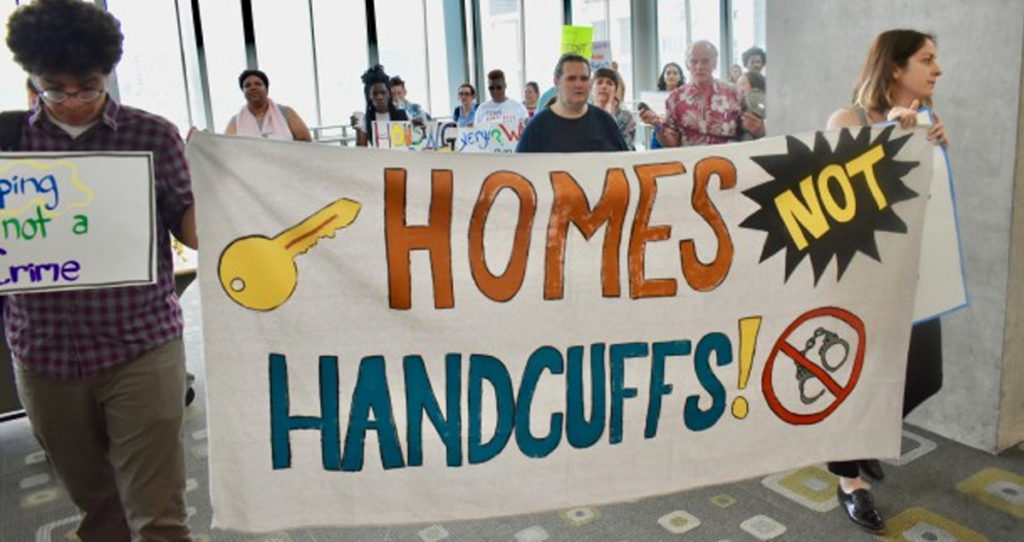
People Without Housing Targeted by City Ordinance in Austin
By Cassandra BrandtEarly voting on a city ordinance to sweep people without housing out of view is underway in Austin. A ban on public sleeping was lifted in 2019, but now Austin’s homelessness problem has become too visible for some. A May 1 vote will determine whether or not to criminalize being homeless again.
Hundreds of jurisdictions across the U.S. have criminalized homelessness, and the trend shows no signs of abating. Cities have made it illegal to block a sidewalk, stand on a roadway median, sleep on public property or in a makeshift shelter or tent.
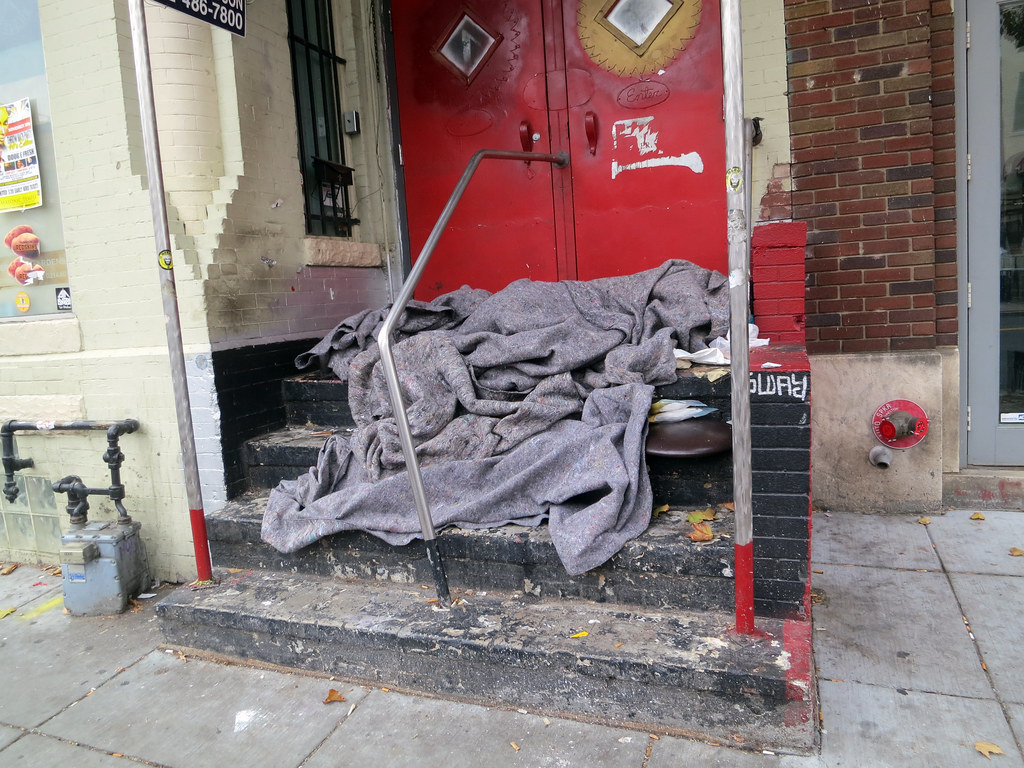
If you can’t afford a place and you carry your belongings with you, you have to set them down at some point, but laws make it illegal for individuals to place property on public ways. Living in your car can also be off-limits. Parking “for habitation purposes” on residential streets is illegal in many cities. Asking for help via panhandling is a crime in many cities, too. Even sharing food in public is a crime in others.
Austin’s Prop B is being voted on during our Secular Week of Action. What action can be taken to protect these Americans who are merely engaging in basic, life-sustaining behaviors, like sleeping, cooking, eating and just sitting in public because they don’t have the means to do such things anywhere else?
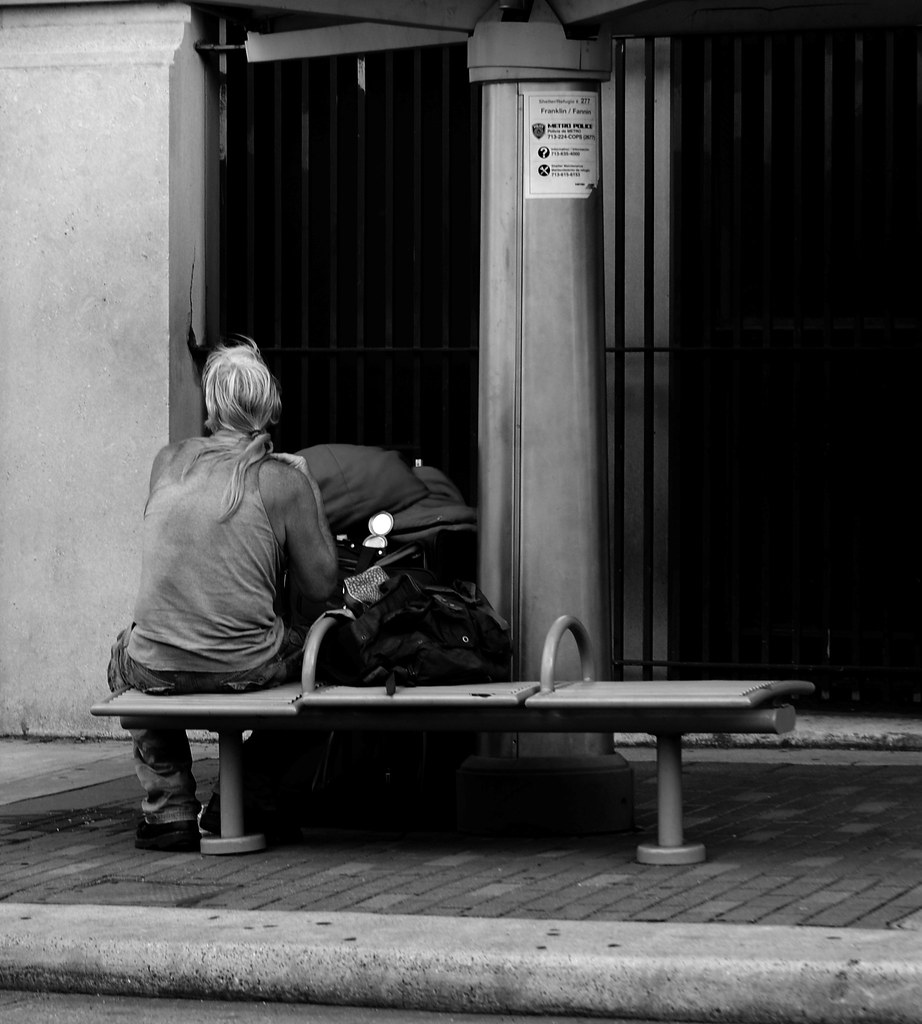
Photo: Patrick Feller
There are around 2,200 people experiencing homelessness every day in Austin, where the cost of living has skyrocketed. About a quarter of all people experiencing homelessness in Texas are employed, but unable to afford shelter. Laws like Prop B exacerbate the problems they purport to address. Prop B threatens Class C Misdemeanors and $500 fines for unhoused people, which will likely turn into arrest warrants and jail time — and result in a marred background check when applying for jobs or housing.
“So in addition to just being cruel and making life so much harder for people experiencing homelessness, it also creates bigger barriers for people to get back on their feet,” says Grace Gibson with Austin’s Democratic Socialists of America chapter (DSA).
Some members of our Beyond Belief Network Team Austin Humanists at Work have connected with Austin’s DSA, which has launched a Homes not Handcuffs campaign and is working hard to talk to enough voters to defeat this proposition. You can learn more about Homes not Handcuffs and their work against Prop B here.
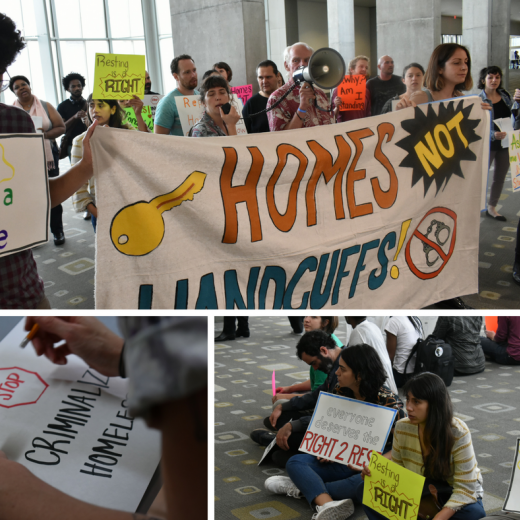
Many of our volunteer Beyond Belief Network teams are in cities that are facing “urban camping” policies that outlaw homelessness. Both Austin Humanists At Work and Austin Atheists Helping the Homeless provide services for the homeless community in Austin. You can support their work by donating to our Secular Week of Action Craft-A-Thon; donations will go directly to BBN teams that support people experiencing homelessness.
Studies show that it costs more to jail those who are homeless than to provide them with shelter. Prop B would not even fund or generate any new housing or services. Austin City Council’s HEAL Initiative plans to rehouse individuals from four high-traffic areas and connect them with housing and shelters but that’s not happening in time.
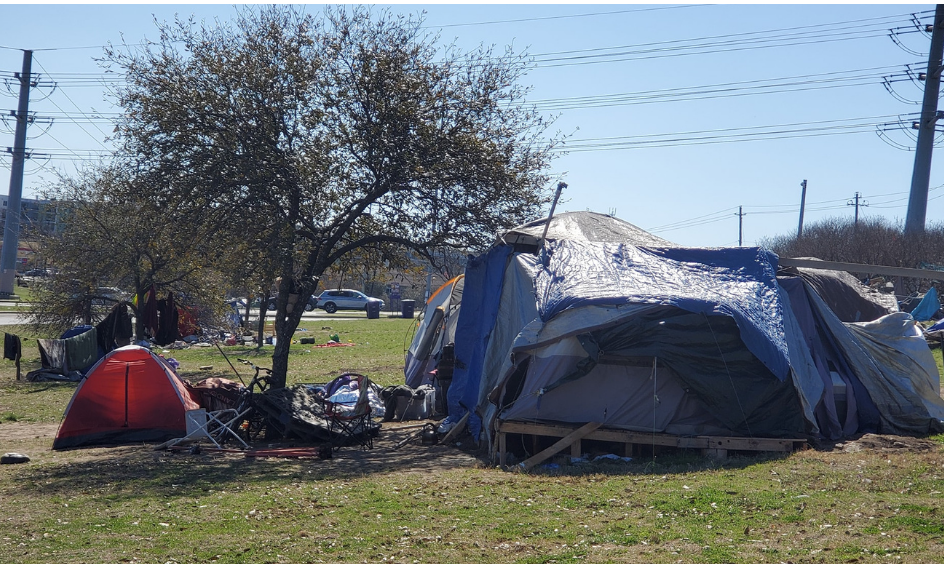
There aren’t enough shelters in Austin to house everyone. The city has converted some motels for homeless housing. Shelters should be an option but aren’t always the solution for everyone, especially in a time of social distancing. Some people have mental illnesses and may find the crowded situation traumatic. Some shelters split families or couples so they choose the street. Forcing people without housing into shelters isn’t the solution; there’s not even nearly enough beds in Austin.
How can you help?
Check out the upcoming Homes Not Handcuffs events and sign up to participate during Secular Week of Action! If you’re local to Austin, you can get involved in COVID-safe canvassing events — and folks outside of the area can still help with virtual phone and text banks.
Let’s put humanist values into action to ensure unhoused people are protected under the law.
Cassandra Brandt is a single mom from rural Arizona. A former traveling tradeswoman, she now lives with quadriplegia and writes and advocates full time.

